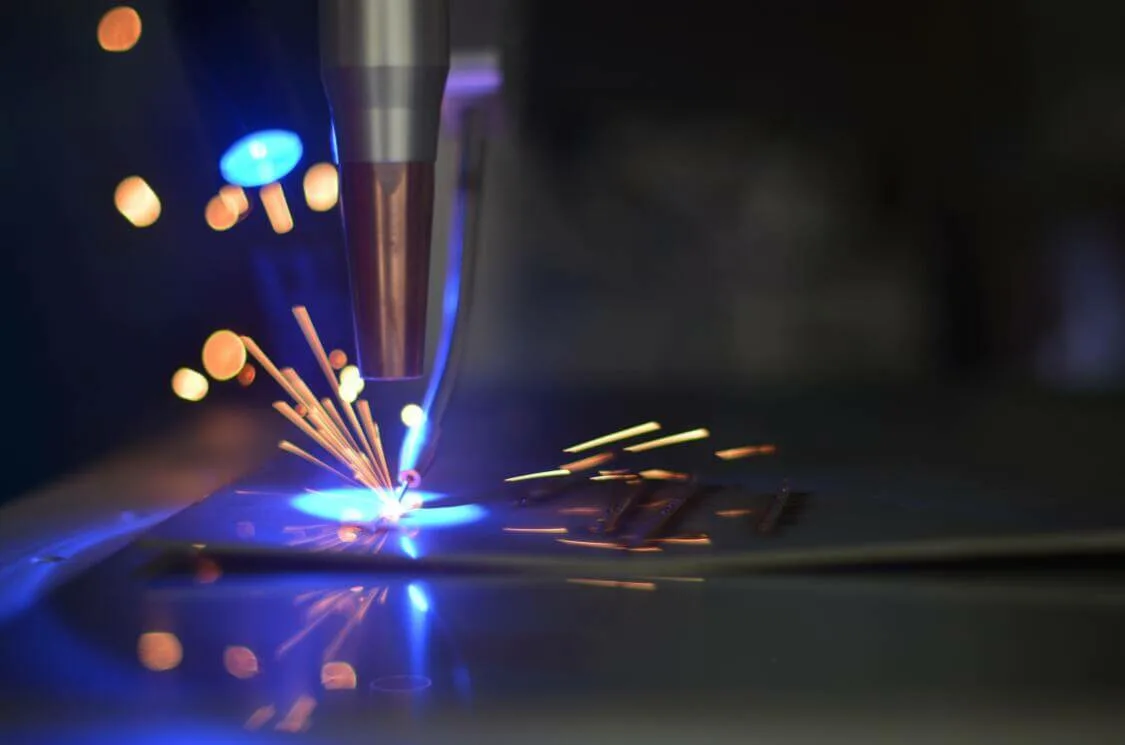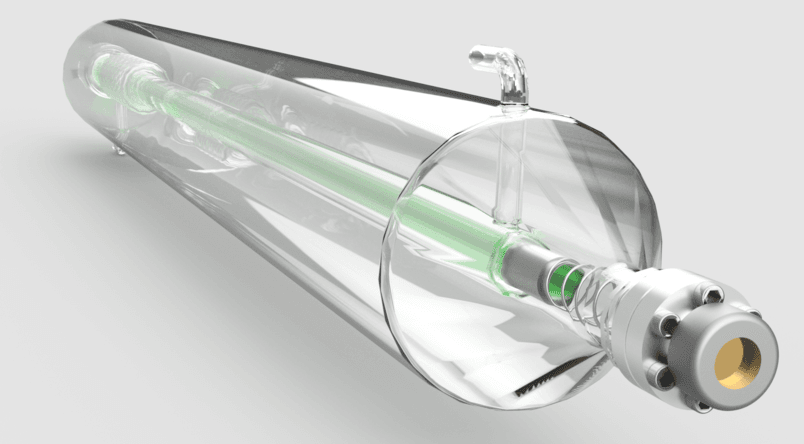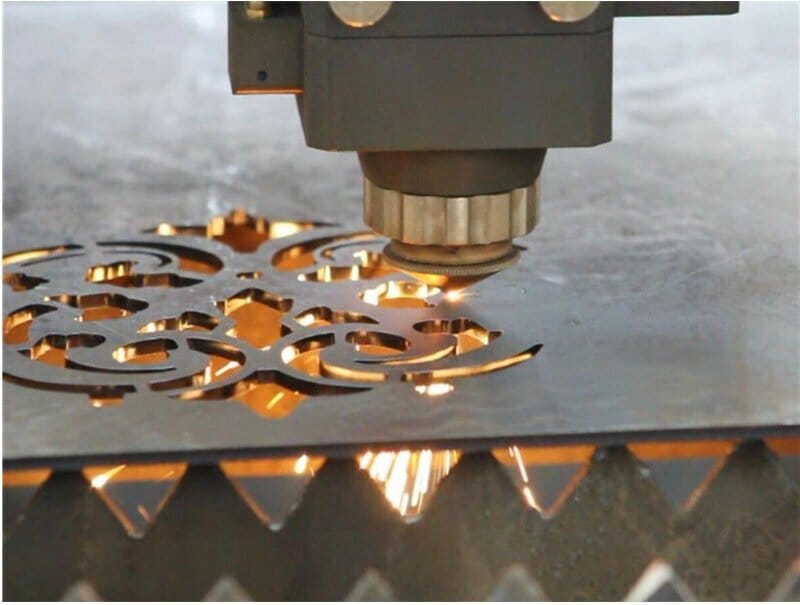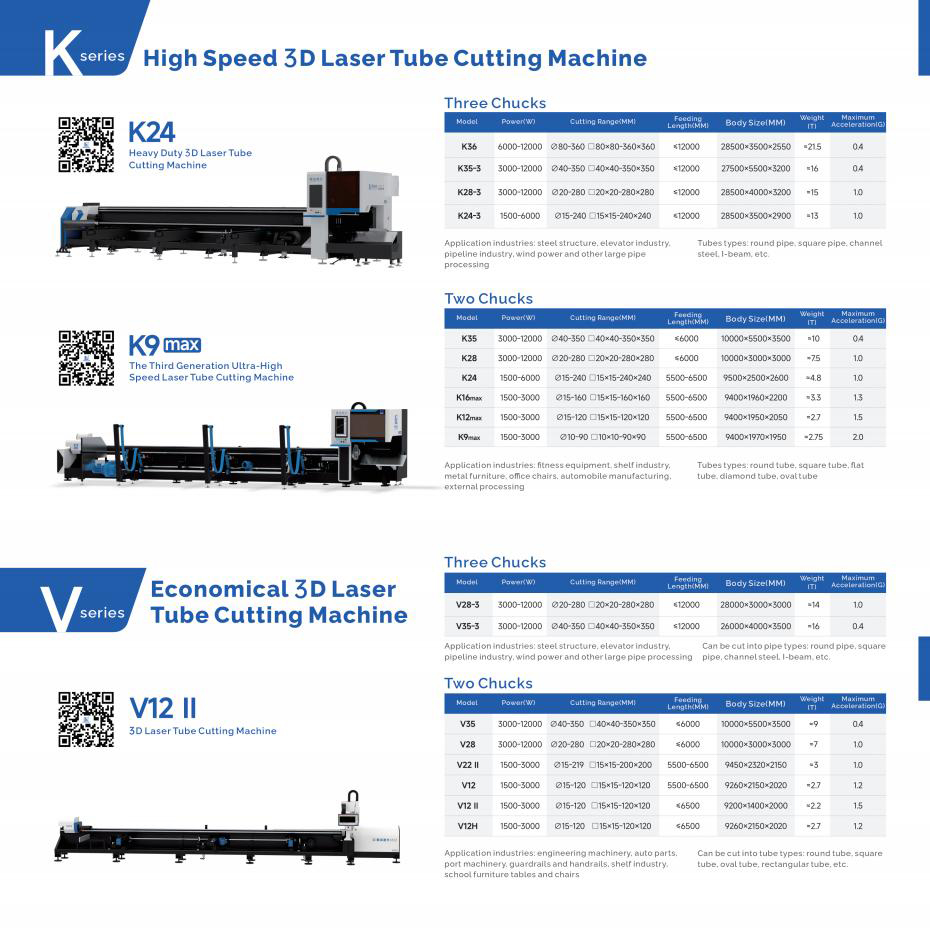La soldadura por láser es una revolucionaria técnica de soldadura que utiliza un láser de alta energía del haz para fundir y fusionar las superficies de metal. Este avanzado método ofrece una serie de ventajas sobre los tradicionales de soldadura enfoques, lo que es una opción cada vez más popular en diversas industrias.
Laser welding machines use a tightly focused laser beam to heat and melt the metal, allowing for precise and controlled welding. The process is characterized by a high aspect ratio, small weld width, minimal heat-affected zone, and fast welding speed. Additionally, laser welding produces smooth and beautiful welds, often eliminating the need for post-welding treatment or additional processing.
Here are some industries that are suitable for laser welding technology:
Sanitary Ware Industry
Laser welding is extensively used for welding water pipe joints, reducers, tees, valves, and shower components, taking advantage of the precise control and high-quality results.
Eyewear Industry
The eyewear industry relies on laser welding for the precision joining of stainless steel, titanium alloy, and other materials used in buckles and outer frames of glasses.
Hardware Industry
La soldadura láser se emplea para soldar impulsores, calderas, asas, y otros complejos estampados y moldes en la industria del hardware.
Automotive Industry
Automotive applications of laser welding include engine cylinder gaskets, hydraulic tappet seal welding, spark plug welding, and filter welding, among others.
Medical Industry
The medical industry utilizes laser welding for welding medical devices, stainless steel seals, and structural components of various medical equipment.
Electronic Industry
Laser welding is widely used in the electronic industry for sealing and breaking welding of solid-state relays, welding of connectors, and the welding of metal shells and structural parts for devices like mobile phones and MP3 players.
Aerospace Industry
The aerospace industry widely uses laser welding for its precision, reliability, and ability to handle specialized materials like aluminum and titanium in aircraft construction.
Shipbuilding Industry
Laser welding is adopted in shipbuilding for its efficiency and suitability in handling thick steel plates and complex ship structures, enabling faster build times and improved weld quality.
Energy and Power Generation
Laser welding is utilized in energy and power generation for fabricating high-performance components like turbine blades, heat exchangers, and pressure vessels, where reliability and safety are crucial.
Robotics and Automation
La soldadura láser, sistemas pueden integrarse fácilmente automatizado de los procesos de fabricación en la robótica y la automatización de las industrias, permitiendo precisas, repetibles y de alta velocidad de la soldadura de componentes delicados.
The advantages of laser welding, such as its concentrated energy, lack of pollution, small welding spots, wide range of weldable materials, high efficiency, and high-speed welding, make it an attractive choice for industries with specific requirements. Products that require precise welds, highly automated processes, and welding in unique conditions or hard-to-reach areas are particularly well-suited for laser welding technology.
As laser welding continues to evolve and become more accessible, its applications are expected to expand further, transforming the way industries approach their welding needs and ensure the quality and efficiency of their manufacturing processes.



